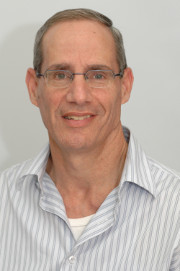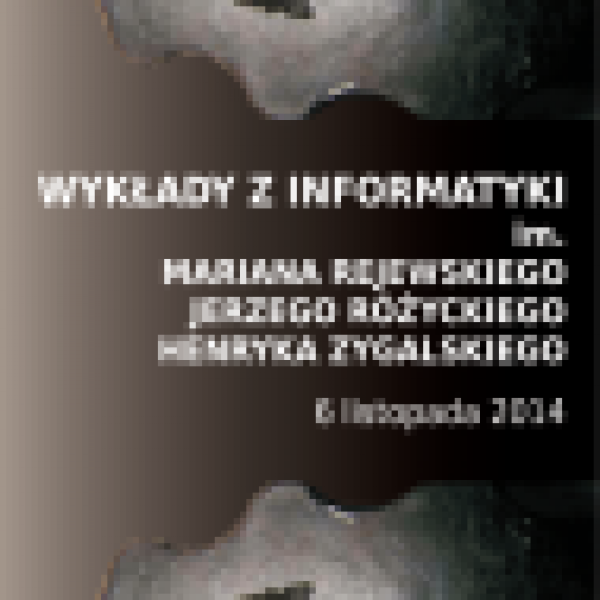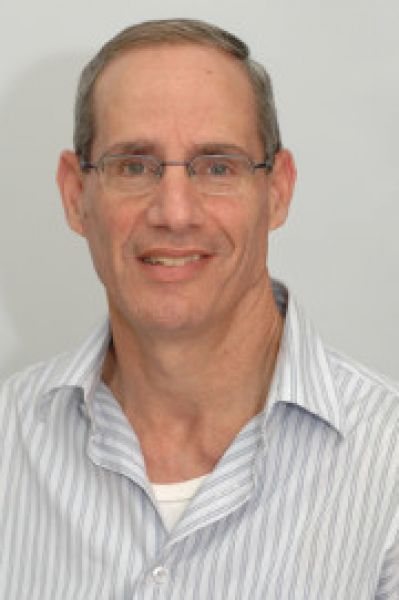Date: thursday, 06.11.2014, 15:30
Speaker: prof. Noga Alon
Title: Voting Paradoxes
Abstract: The early work of Condorcet in the 18th century, and that of Arrow and others in the 20th century, revealed the complex and interesting mathematical problems that arise in the theory of Social Choice, showing that the simple process of voting leads to strikingly counter-intuitive paradoxes. I will describe some of these, focusing on several recent intriguing examples whose analysis combine combinatorial and probabilistic ideas with techniques from the theory of the VC dimension of range spaces.
Video
Program
| 06.11.2014 r. | |
| 11:00 | Laying flowers under the cryptologists' memorial plate in Collegium Minus |
| 15:30 | Noga Alon Voting Paradoxes Hall A of Faculty of Mathematics and Computer Science After the lecture: Meeting at the faculty profesors' club |
Speaker
 Noga Alon is a Baumritter Professor of Mathematics and Computer Science at Tel Aviv University, Israel. He received his Ph. D. in Mathematics at the Hebrew University of Jerusalem in 1983 and had visiting positions in various research institutes including MIT, the Institute for Advanced Study in Princeton, IBM Almaden Research Center, Bell Laboratories, Bellcore and Microsoft Research. He joined Tel Aviv University in 1985, served as the head of the School of Mathematical Sciences in 1999-2001, and supervised about 20 PhD students. Since 2009 he is also a member of Microsoft Research, Israel. He serves on the editorial boards of more than a dozen international technical journals and has given invited lectures in many conferences, including plenary addresses in the 1996 European Congress of Mathematics and in the 2002 International Congress of Mathematicians. He published one book and more than five hundred research papers. His research interests are mainly in Combinatorics, Graph Theory and their applications in Theoretical Computer Science. His main contributions include the study of expander graphs and their applications, the investigation of derandomization techniques, the foundation of streaming algorithms, the development and applications of algebraic and probabilistic methods in Discrete Mathematics and the study of problems in Information Theory, Combinatorial Geometry and Combinatorial Number Theory. He is a member of the Israel Academy of Sciences and Humanities since 1997 and of the Academia Europaea since 2008, and received the Erdös Prize in 1989, the Feher Prize in 1991, the Polya Prize in 2000, the Bruno Memorial Award in 2001, the Landau Prize in 2005, the Gödel Prize in 2005, the Israel Prize in 2008, the EMET Prize in 2011 and an Honorary Doctorate from ETH Zurich in 2013.
Noga Alon is a Baumritter Professor of Mathematics and Computer Science at Tel Aviv University, Israel. He received his Ph. D. in Mathematics at the Hebrew University of Jerusalem in 1983 and had visiting positions in various research institutes including MIT, the Institute for Advanced Study in Princeton, IBM Almaden Research Center, Bell Laboratories, Bellcore and Microsoft Research. He joined Tel Aviv University in 1985, served as the head of the School of Mathematical Sciences in 1999-2001, and supervised about 20 PhD students. Since 2009 he is also a member of Microsoft Research, Israel. He serves on the editorial boards of more than a dozen international technical journals and has given invited lectures in many conferences, including plenary addresses in the 1996 European Congress of Mathematics and in the 2002 International Congress of Mathematicians. He published one book and more than five hundred research papers. His research interests are mainly in Combinatorics, Graph Theory and their applications in Theoretical Computer Science. His main contributions include the study of expander graphs and their applications, the investigation of derandomization techniques, the foundation of streaming algorithms, the development and applications of algebraic and probabilistic methods in Discrete Mathematics and the study of problems in Information Theory, Combinatorial Geometry and Combinatorial Number Theory. He is a member of the Israel Academy of Sciences and Humanities since 1997 and of the Academia Europaea since 2008, and received the Erdös Prize in 1989, the Feher Prize in 1991, the Polya Prize in 2000, the Bruno Memorial Award in 2001, the Landau Prize in 2005, the Gödel Prize in 2005, the Israel Prize in 2008, the EMET Prize in 2011 and an Honorary Doctorate from ETH Zurich in 2013.







